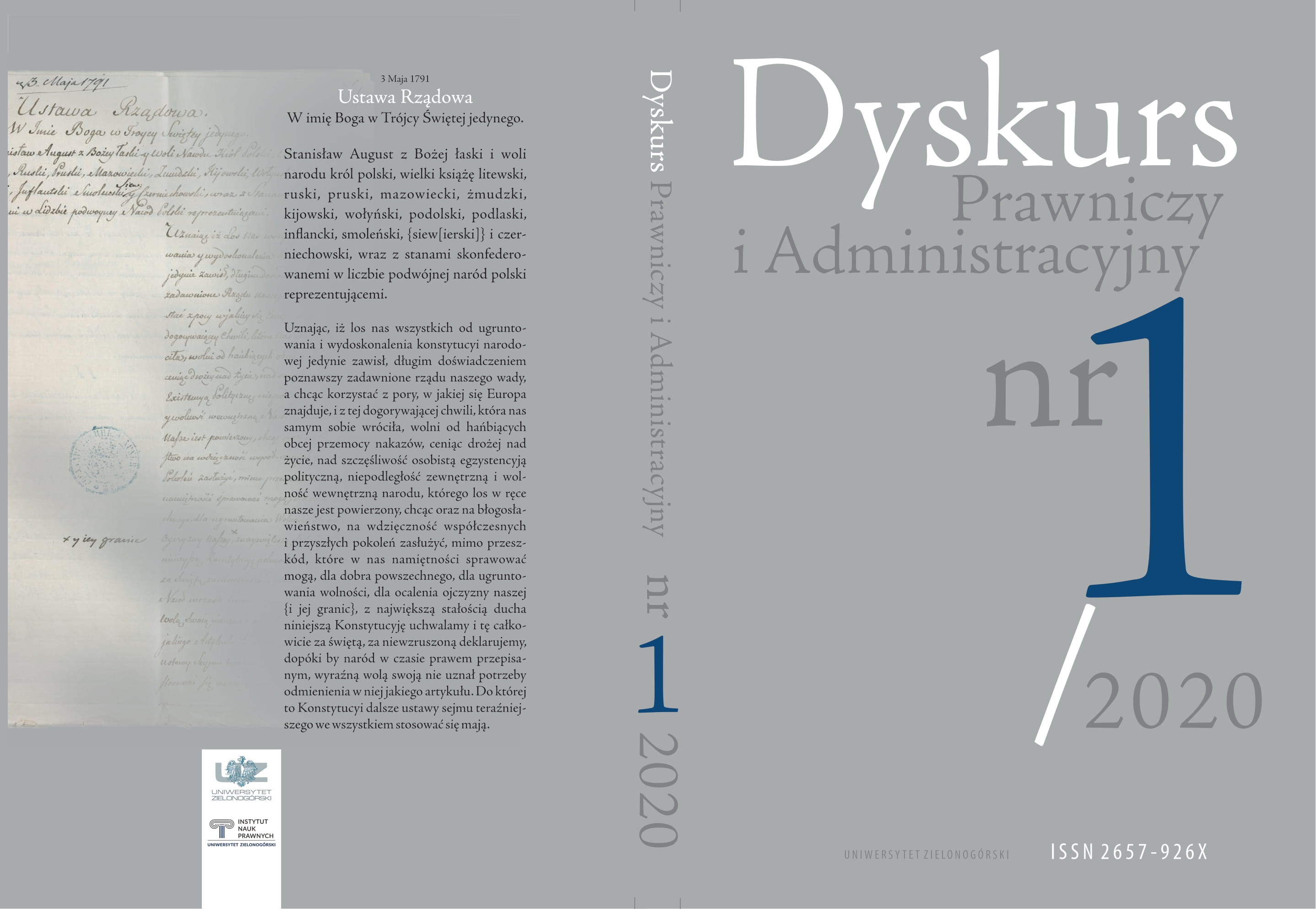Binding power of Supreme Court resolutions in concreto in criminal cases
Keywords:
Supreme Court, binding force of Supreme Court resolutions, requiring fundamental interpretation of a statuteAbstract
The subject of the study is the problem of binding force of Supreme Court resolutions adopted in specific criminal cases. The legal basis for the adoption of these resolutions are the provisions of Article 441 of the Code of Criminal Procedure and Article 82 of the Act of 8 December 2017 on the Supreme Court. According to Article 441 § 1 of the Code of Criminal Procedure, if during the examination of an appeal an issue requiring a fundamental interpretation of the law arises, the appellate court may postpone the examination of the case and refer the legal issue for resolution to the Supreme Court, which may also refer the resolution of the legal issue to an enlarged panel of this court (arg. ex art. 441 § 2 of the Code of Criminal Procedure). The resolution of the Supreme Court is binding in the given case (arg. ex art. 441 § 3 of the Code of Criminal Procedure). The provision of Article 82 of the Supreme Court Act concerns a situation where the Supreme Court, while examining a cassation appeal or other appeal, develops serious doubts as to the interpretation of the provisions of law constituting the basis for its decision, then it may postpone the examination of the case and present the legal issue for resolution to a panel of 7 judges of the court. The binding force of Supreme Court resolutions adopted under the above provision should be considered in terms of whether or not they have the force of a legal principle. Thus, when a Supreme Court resolution is given the force of a principle of law, it formally becomes binding within the Supreme Court, which means that it is binding on all the panels of the Supreme Court, including the full panel of the Supreme Court.
References
Augustyniak B., Eichstaedt K., Kurowski M., Świecki D., Kodeks postępowania karnego. Komentarz, wydanie 4, Warszawa 2018.
Bafia J., Bednarzak J., Flemming M., Kalinowski S., Kempisty H., Siewierski H., Kodeks postępowania karnego. Komentarz, red. M. Mazur, Warszawa 1971.
Bafia J., Bednarzak J., Flemming H., Kalinowski S., Kempisty H., Siewierski H., Kodeks postępowania karnego. Komentarz, red. M. Mazur, Warszawa 1976.
Bratoszewski J., Gardocki L., Gostyński Z., Przyjemski S.M., Stefański R.A., Zabłocki S., Kodeks postępowania karnego, tom III. Komentarz, red. Z. Gostyński, Warszawa 2004.
Grajewski J., Paprzycki L.K., Steinborn S., Kodeks postępowania karnego. Komentarz, tom II, wydanie 3, Warszawa 2013.
Grzegorczyk T., Kodeks postępowania karnego. Komentarz, tom I, artykuły 1-467, wydanie 6, Warszawa 2014.
Hofmański P., Sadzik E., Zgryzek K., Kodeks postępowania karnego. Komentarz, tom II, wydanie 4, Warszawa 2011.
Hofmański P., Granice niezależności sądu w kształtowaniu prawnej podstawy rozstrzygnięcia w procesie karnym, „Problemy Prawa Karnego” 1991, nr 17.
Hofmański P., Samodzielność jurysdykcyjna sądu karnego, Katowice 1988.
Kozielewicz W., Postępowanie w przedmiocie odstąpienia od uchwały Sądu Najwyższego mającej moc zasady prawnej, [w:] Artes serviunt vitae, sapienta imperat. Proces karny sensu largo – rzeczywistość i wyznania. Księga jubileuszowa Profesora Tomasza Grzegorczyka z okazji 70. urodzin, red. nauk. R. Olszewski i inni, Warszawa-Łódź 2019.
Kwiatkowski Z., Charakter prawny uchwał Sądu Najwyższego, „Ius Novum” 2020, nr 2.
Marszał K., Stachowiak S., Zgryzek K., Proces karny, wydanie II, Katowice 2005.
Marszał K., Proces karny, wydanie II uzupełnione i poprawione, Katowice 1995.
Morawski L., Wykładnia w orzecznictwie sądów. Komentarz, Toruń 2002.
Pilarska-Gumny M., Konkretne pytania prawne do Sądu Najwyższego w sprawach karnych, „Ius Novum” 2013, nr 2.
Stefański R.A., Instytucja pytań prawnych do Sądu Najwyższego w sprawach karnych, Zakamycze 2001.
Stefański R.A., Abstrakcyjne pytania prawne do Sądu Najwyższego, [w:] System Prawa Karnego Procesowego. Zagadnienia ogólne, tom I, cz. 2., red. naukowy P. Hofmański, Warszawa 2013.
Stefański R.A., Przegląd uchwał Izby Karnej Sądu Najwyższego w zakresie prawa karnego za 1994 r., „Wojskowy Przegląd Prawniczy” 1996, nr 1.
Stefański R.A., Przegląd uchwał Izby Karnej Sądu Najwyższego w zakresie prawa karnego procesowego za lata 1991-1993, „Wojskowy Przegląd Prawniczy” 1994, nr 2.
Szczucki K., Ustawa o Sądzie Najwyższym. Komentarz, Warszawa 2018.
Włodyka S., Wiążąca wykładnia sądowa, Warszawa 1971.
Zabłocki S., Postępowanie odwoławcze w nowym Kodeksie postępowania karnego. Praktyczny komentarz, Warszawa 1997.
Zbrojewska M., Rola i stanowisko Sądu Najwyższego w procesie karnym, Warszawa 2013.
Published
How to Cite
Issue
Section

This work is licensed under a Creative Commons Attribution-NonCommercial-NoDerivatives 4.0 International License.



